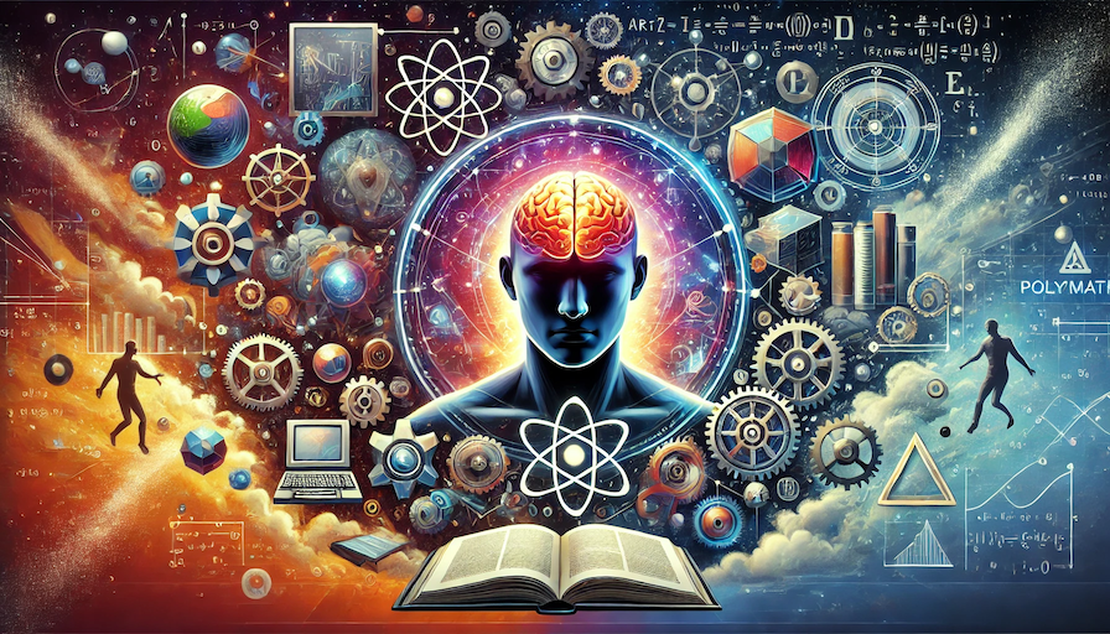The Polymath: The Multidimensional Genius
The term polymath stems from the Greek polymathēs, meaning “having learned much.” It refers to an individual whose expertise spans multiple fields of knowledge and who synthesizes this breadth of understanding to create groundbreaking ideas. Polymaths are not simply generalists; they are deep thinkers with mastery in diverse areas, often blending art, science, mathematics, and philosophy into cohesive frameworks.
In today’s world, where specialization often reigns supreme, the concept of the polymath remains as intriguing and inspiring as ever. Let’s explore what defines a polymath, celebrate historical figures who epitomized this ideal, and consider who among us might earn this illustrious title in the modern age.
Features of a Polymath
Polymaths are distinguished by several key characteristics:
- Curiosity Across Domains: They possess an insatiable desire to explore multiple disciplines and understand how they interconnect.
- Depth and Breadth: While polymaths excel in numerous fields, they often achieve mastery rather than superficial knowledge.
- Interdisciplinary Thinking: Polymaths synthesize information from disparate areas, finding novel solutions to complex problems.
- Resilience and Lifelong Learning: They adapt and grow throughout their lives, pursuing knowledge even when it requires stepping outside their comfort zones.
- Creative Problem-Solving: By drawing from varied perspectives, they approach challenges with a fresh lens, often seeing possibilities others might overlook.
Famous Polymaths Through History
Leonardo da Vinci (1452–1519)
Leonardo da Vinci is often considered the archetype of the polymath. His contributions to art (e.g., Mona Lisa, The Last Supper), science, anatomy, and engineering illustrate a profound ability to merge creativity with rigorous inquiry. He was centuries ahead of his time, conceptualizing designs for flying machines and military innovations that would only become feasible with modern technology.
Galileo Galilei (1564–1642)
Known as the “father of modern science,” Galileo contributed to physics, astronomy, and mathematics. His inventions, such as the improved telescope, and his advocacy for the heliocentric model of the solar system demonstrate his ability to challenge prevailing dogmas.
Benjamin Franklin (1706–1790)
Franklin was an inventor, writer, diplomat, and scientist. He is celebrated for his work in electricity, the invention of the lightning rod, and his contributions to political theory and statecraft during the American Revolution.
Hypatia of Alexandria (c. 360–415)
One of the earliest recorded polymaths, Hypatia was a mathematician, astronomer, and philosopher. She is revered for her contributions to the preservation and advancement of classical knowledge during an era of political and religious turmoil.
John von Neumann: Thank you
John von Neumann (1903–1957) is often regarded as a quintessential modern polymath. His achievements spanned mathematics, physics, computer science, and economics, leaving a legacy that continues to shape contemporary thought.
- Game Theory: Von Neumann co-founded the mathematical discipline of game theory, revolutionizing economics and decision-making processes across various industries.
- Computer Science: His conceptualization of the stored-program computer architecture, known as the von Neumann architecture, became the foundation of modern computing.
- Mathematics and Quantum Mechanics: Von Neumann made significant contributions to set theory, operator algebras, and the formal foundations of quantum mechanics.
- Nuclear Science: As a key figure in the Manhattan Project, he applied his expertise in physics and mathematics to develop models that underpinned nuclear technology.
- Economics: His book Theory of Games and Economic Behavior, co-authored with Oskar Morgenstern, introduced groundbreaking ideas that continue to influence global economic strategies.
Von Neumann’s ability to traverse these domains with ease epitomizes the polymathic ideal.
Who Is Considered a Polymath Today?
In the modern era, the rapid advancement of knowledge and increasing specialization have made it more challenging to achieve polymath status. However, a few individuals stand out:
-
Elon Musk: Known for his work in engineering, business, and physics, Musk has influenced industries ranging from electric vehicles (Tesla) to space exploration (SpaceX) and artificial intelligence (OpenAI).
-
Tim Berners-Lee: The inventor of the World Wide Web, Berners-Lee’s contributions to computer science and his work in promoting open access and digital equity illustrate his multifaceted genius.
-
Mae Jemison: An astronaut, engineer, and physician, Jemison exemplifies the modern polymath with her accomplishments in space exploration, STEM advocacy, and social justice.
-
Neil deGrasse Tyson: As an astrophysicist, author, and science communicator, Tyson bridges the gap between rigorous academic research and public engagement, embodying the interdisciplinary spirit of the polymath.
The Legacy and Relevance of Polymaths
Polymaths remind us that human potential is not confined to singular pursuits. Their ability to integrate diverse knowledge areas offers a blueprint for solving today’s most complex challenges, from climate change to artificial intelligence ethics.
In an age of specialization, fostering a polymathic mindset—characterized by curiosity, adaptability, and a commitment to lifelong learning—can inspire individuals and society to push beyond conventional boundaries. The polymath remains not just a historical archetype but a vital ideal for a rapidly evolving world.
⚠️ Please take a look at the LLM Disclaimer
